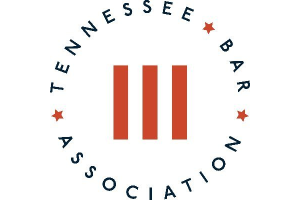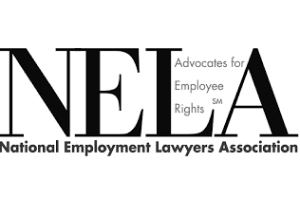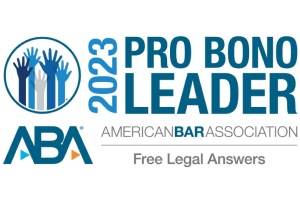for Workers
Unlawful Discrimination
Nashville Discrimination Lawyers
You deserve a fair and equal work environment free of discrimination. Unfortunately, some employers trample on employees’ legal rights by refusing to investigate unlawful discrimination in the workplace and choosing instead to terminate the victims.
Our Nashville discrimination lawyers have proven track records of success in fighting for victims of workplace discrimination. Our exceptional legal services have resulted in highly satisfied clients.
Overview of Federal and Tennessee Anti-Discrimination Laws
Discrimination in the workplace is prohibited by federal and Tennessee law. Under these employment laws, an employer is prohibited from making adverse employment decisions based on many protected classes. Employees in Tennessee have workplace legal protections designed to prevent or remedy unlawful discrimination and retaliation. These laws include:
- Title VII of the Civil Rights Act of 1964
- Section 1 of the 1866 Civil Rights Act (Section 1981)
- Age Discrimination in Employment Act
- Pregnancy Discrimination Act
- Americans With Disabilities Act
- Family and Medical Leave Act
- Uniformed Services Employment and Reemployment Rights Act
- Employee Retirement Income Security Act
- Fair Labor Standard Act
- National Labor Relations Act
- Equal Pay Act
- Tennessee Human Rights Act
- Tennessee Disability Act
- Tennessee Maternity Leave Act
- Tennessee Pregnant Workers Fairness Act
- + many more (including several whistleblower laws)
Our skilled Nashville-based discrimination lawyers file discrimination complaints on behalf of Tennessee workers in and out of court.
Unlawful Retaliation After Complaining About Workplace Discrimination
Employees are often worried about an employer retaliating against the employee for reporting workplace discrimination or harassment. However, federal and state laws makes it unlawful for employers to target employees who report workplace discrimination or harassment, e.g., reporting race discrimination to the director of human resources. As such, you may have legal recourse against your employer if it chooses to violate the law. Often, retaliation claims are easier to prove than the underlying discrimination or harassment claim.
Employer Duty To Notify Employees of Their Workplace Rights
Employers who are covered by federal employment laws are required to post notice of anti-discrimination laws in the form of the “EEO is the Law” poster. This mandatory poster is prepared by the Equal Employment Opportunity Commission and must be placed in a conspicuous location where notices are customarily posted. Employers must also keep all payroll records for a minimum of three years and all wage calculation methods for at least two years.
Proving a Workplace Discrimination Claim in Tennessee
Most workplace discrimination cases involve an employee being wrongfully terminated and replaced by an individual outside the protected class, or being treated less favorably because of his or her protected characteristic.
To raise a presumption of discrimination, an employee must show he or she:
- (1) is a member of a protected class;
- (2) was qualified for the position;
- (3) suffered an adverse employment action [see examples below]; and
- (4) was replaced by an individual outside the protected class or treated less favorably than a similarly-situated person outside the protected class.
Together, these four elements are called a prima facie case of discrimination.
Once an employee establishes a prima facie case, the burden shifts to the employer to articulate a legitimate, nondiscriminatory reason for its actions (e.g., bad performance, poor behavior, absenteeism, etc.). Once the employer does so, the employee must show the employer’s reason is pretext for discrimination. Pretext is just a fancy way of saying the employer’s stated reason is fake in an attempt to cover-up discrimination.
Usually, the first two elements of a prima facie case are easily established while the third and fourth elements are contested. Below is a breakdown of each prima facie element that must be proven.
Receive a free online case review by contacting our experienced Nashville discrimination lawyers at the number above or online.
1. Member of Protected Class
The first element of a discrimination case requires you to show that you are a member of a legally protected class. This varies depending on the circumstances. In general, if your claim is based on one of the protected categories listed above, then you can easily establish this first element.
2. Qualified for the Position
This element simply asks, did you meet the qualifications for the position? Considerations may include experience, education, licensure, etc. Typically if you are already in the position, and have been successfully performing your duties for a period of time, this second element of a discrimination claim will be established.
3. Adverse Employment Action
Third, you must show that you were harmed by your employer as a result of the workplace discrimination. Below are common examples of adverse employment actions:
- termination
- demotion
- suspension
- pay cut (or being denied a pay raise)
- eliminating or reducing job responsibilities
- being passed over for promotion
- others actions that affects the terms and conditions of your employment.
Other types of adverse employment actions exist but the general idea is that the action must be more than a trivial harm. For example, a lateral transfer is probably not adverse enough to meet this standard.
4. Replaced By Individual Outside Protected Class or Treated Less Favorably than Similarly Situated Non-Member
The fourth element of a discrimination claim requires showing that you were replaced by someone outside of the protected class. For example, in an age employment discrimination claim, you can establish this element by showing you were replaced by someone at least 10 years younger than you. If you were not replaced, then you must show that you were treated less favorably than similarly situated individuals outside of your protected class.
You and the non-class members (called comparators) must be similarly situated in all relevant respects. Generally relevant factors include whether you and the comparator(s):
- (a) engaged in the same conduct;
- (b) dealt with the same supervisor; and
- (c) were subject to the same standards.
These factors are not exhaustive and the relevancy of a particular factor can vary depending on the specific facts of your case. For instance, in some circumstances, you and a comparator need not have had the same supervisor.
Employment law cases are difficult and you need to know your legal rights. If you have suffered from unlawful discrimination, contact a workplace discrimination lawyer serving Nashville at the number above or online.
How Much Money is a Workplace Discrimination Case Worth?
The value of a given workplace discrimination case varies significantly based on many factors, but there are four general categories of damages in employment discrimination cases:
- Lost Wages: Lost wages (also called economic damages) include back pay and front pay. Back pay consists of your wages, salary, and benefits lost as a result of your wrongful termination. Front pay is similar but takes into account your future lost earnings and benefits.
- Compensatory Damages: Compensatory damages are intended to take into account the emotional pain and suffering caused by an employer’s unlawful actions.
- Punitive Damages: Punitive damages might be available in cases involving intentional workplace discrimination and are intended to punish and deter your employer from committing similar legal violations in the future.
- Attorney’s Fees and Costs: Less than 5% of employment law cases go to trial. But if you win at trial, you may also receive your attorney’s fees and costs.
For many employment law claims, compensatory and punitive damages are capped under the law. However, such caps do not apply to backpay, interest on backpay, front pay, equitable relief, or damages for claims under 42 U.S.C. § 1981.
Short Deadlines to Preserve Your Discrimination Claims
Workplace discrimination claims have strict deadlines by which you must file your claims in court or with the EEOC. Failing to file by this deadline means you cannot pursue your claims in court. So if you might have claims, you should not wait to contact our workplace discrimination lawyers.
Protect Your Employment Legal Rights
You are entitled to be fully compensated for the workplace discrimination you experienced. Fight back by contacting our Nashville-based discrimination attorneys at the number above or online for a free online case review.














